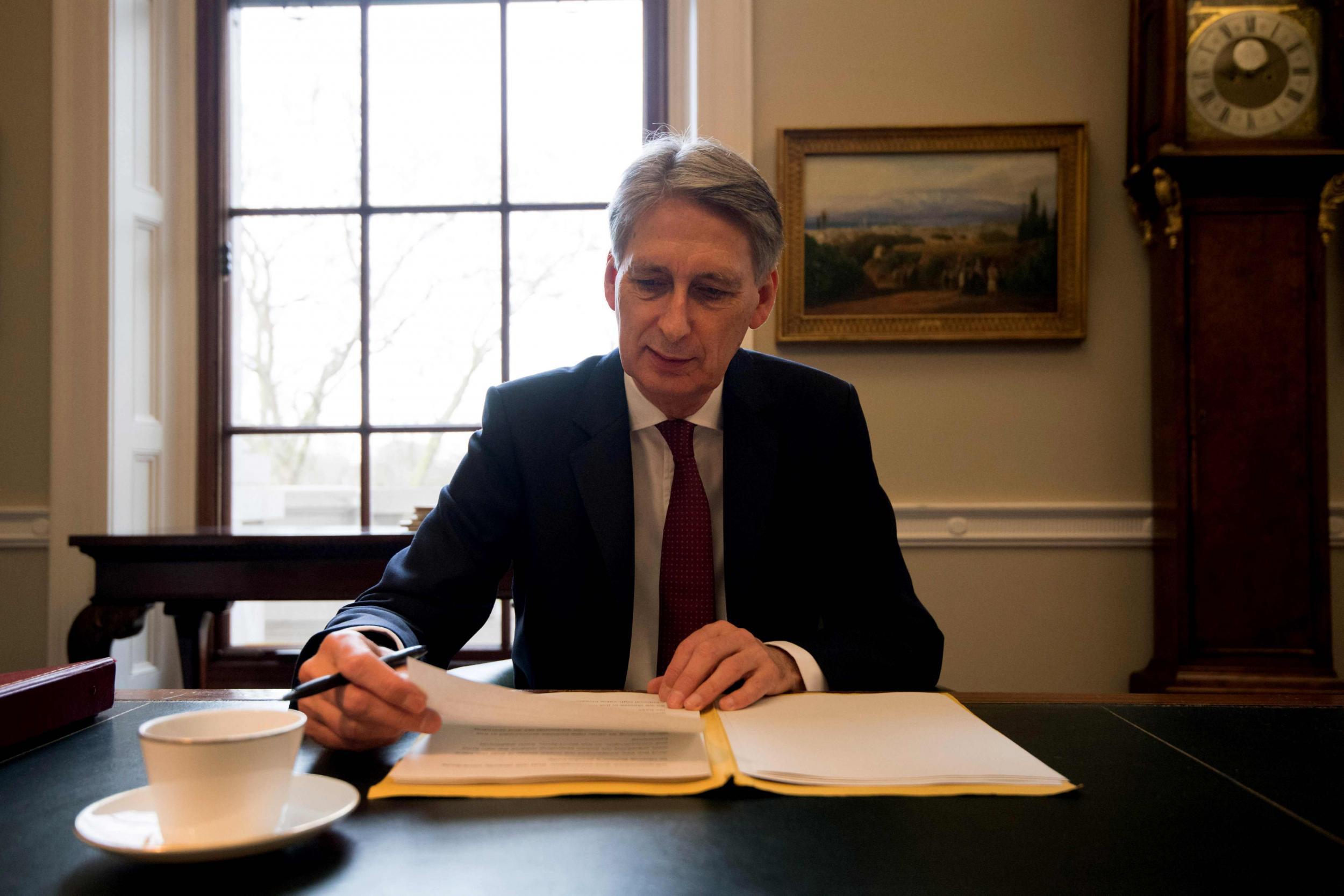If Theresa May wants her Government to work for everyone, then Philip Hammond needs to start budgeting for gender
If social security is cut, this hurts women more because it represents a greater share of their income than men’s. The Government’s attack on the public sector hits women harder because a higher proportion of women are employed in it


There are, right now, as many men in Parliament as there have ever been female Members of Parliament.
When I was born, 21 female MPs sat in Westminster. Clearly things have improved: there are now 196. But with 650 constituencies, there is a long, long way to go.
For many these numbers were made more real by the election of President Trump in the United States last year, with thousands scared of what his presidency will mean for not just women’s rights, but their life chances under his watch.
We’ve moved on light years from the discrimination our mothers once faced, but as the election across the pond showed, we cannot rest on our laurels.
That’s not to say that politics is the only domain that feels the burden of inequality. Back in the UK, despite the Equal Pay Act being signed 47 years ago, women are still paid considerably less than men, and a slew of data consistently shows how women are underrepresented in boardrooms or as chief executives of top firms – despite evidence showing the benefits of diversity.
Such is the extent of the disparity, the headlines scarcely seem to change. What has changed is the series of negative impacts on women since 2010 in economic terms.
Some 86 per cent of the net gains to the Treasury through tax and benefit changes since 2010 have come from women.
That's why Labour have announced a twelve month consultation on a new Economic Equality Bill. This Bill will aim to strengthen legislation around equal pay and tackle the structural and economic barriers that stop women, BAME communities and disabled people from reaching their full potential.
The Labour party is clear: the Budget is a critical day for women’s rights and should be viewed as an opportunity to fix long-held structural problems.
This would not be a radical departure for many countries. Some 40 nations around the world now engage in gender budgeting, or producing a Budget that advances women’s economic independence.

Why do they do this? Because those countries have cottoned on to the fact that women are particularly vulnerable to government policies.
If social security is cut, this hurts women more because it represents a greater share of their income than men’s. Top tax breaks for individuals benefit women less, because they tend to earn less. The government’s attack on the public sector hits women harder because a higher proportion of women are employed in it.
And, if instead the Conservative government pursued a more nuanced approach, they would reap huge benefits; we know gender equality is good for economic growth. Issues outlined above need to be considered during policy making and budget setting.
Of course, it cannot be right that it will take 60 years to close the gender pay gap, or that women are forced into lower paid jobs after maternity leave. It is self-evident that fighting violence against women, as well as male and female stereotypes is vital. But it is also crucial that the Government stops refusing to consider the impact of its policies on women, subjecting them to a never-ending battle for economic independence.
For after seven years of Conservative austerity, women are bearing the brunt of a flat economy and an unimaginative public policy programme.
Compare that to the major pieces of legislation to improve the lives of working women which have all been introduced by a Labour government, from the aforementioned Equal Pay Act to the Sex Discrimination Act and the Equality Act.
So if Theresa May’s economy is to “work for everyone”, her Government can start by producing an analysis of their policies on women.
It’s a start that is long overdue. But with the election of President Trump, it’s a start that will show the UK is willing to take the lead on the issue of gender equality at a time when it is found wanting.
Catherine West is Labour MP for Hornsey & Wood Green and Shadow Foreign Office Minister
Join our commenting forum
Join thought-provoking conversations, follow other Independent readers and see their replies
Comments
Bookmark popover
Removed from bookmarks